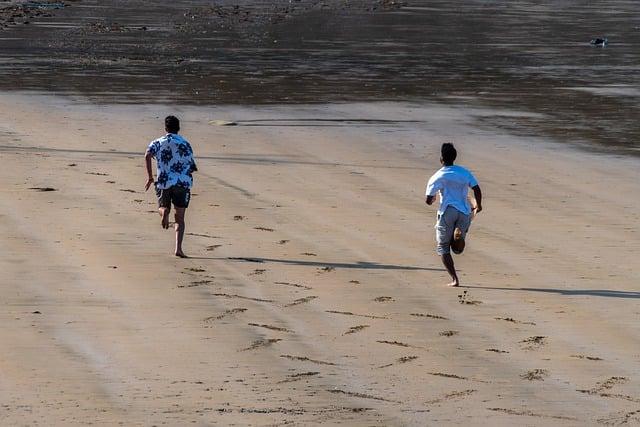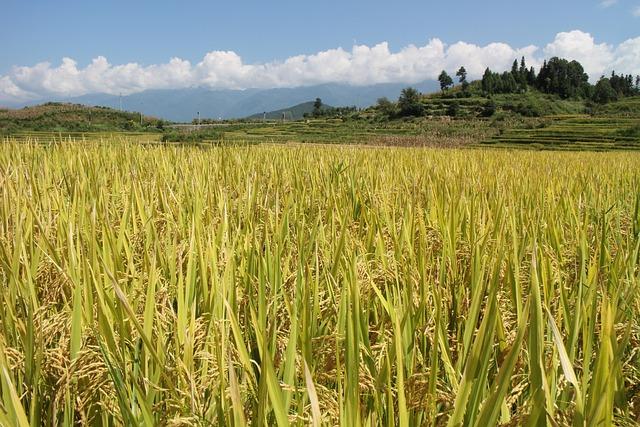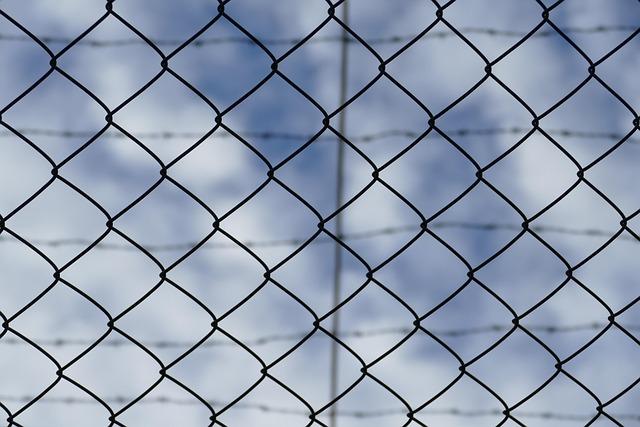Title: Long-Term Detention and Potential Deportation: Uyghur Men in thailand Face Uncertain Fate
In a troubling advancement that has raised international human rights concerns, a group of Uyghur men who have been detained in Thailand for over a decade may have been deported to China, where they could face severe repercussions. The fate of these individuals, who sought asylum to escape persecution in their homeland, reflects the complexities surrounding the treatment of ethnic minorities and the ongoing geopolitical tensions between nations. As reports emerge from various human rights organizations and news agencies, questions loom regarding the legal and humanitarian implications of their detention and possible repatriation.This article delves into the circumstances surrounding their long-term detention in Thailand, the potential consequences of their deportation, and the broader implications for Uyghurs facing similar plights worldwide.
Uyghur Detention in Thailand: A decade of Uncertainty
For over a decade, a small group of Uyghur men has found themselves in a precarious limbo within the confines of thai detention facilities. Initially arrested in 2014 while attempting to escape to Turkey, these individuals have faced the looming threat of deportation to china, where they could face severe persecution due to their ethnic and religious identity. Despite international pressure and advocacy from human rights organizations, the unresolved status of these men highlights a complex web of diplomatic tensions and human rights concerns. Thailand, caught between maintaining its relationships with China and adhering to international norms, has not provided a clear resolution for these detainees.
The uncertainty surrounding their fate has been compounded by inconsistent reports about their status.Recent allegations suggest that some may have been deported, raising alarm among human rights advocates who fear for their safety. The implications of such actions resonate on multiple levels, including:
Human Rights Violations: Potential breaches of international law regarding refoulement.
Political Pressure: Ongoing diplomatic negotiations between Thailand and China.
Impact on Families: Emotional and logistical strains on relatives anxious about their loved ones’ safety.
As the situation evolves, the lack of openness and dialog from Thai authorities fuels the uncertainty and anxiety experienced by both detainees and their families. Observers continue to monitor the situation closely, advocating for humane treatment and adherence to international human rights standards.

human Rights Concerns Surrounding the Deportation of Uyghur Men
the recent reports concerning Uyghur men who have been detained in Thailand for over a decade raise meaningful human rights concerns, particularly regarding their potential deportation to China. These men, many of whom fled persecution, find themselves entangled in a legal and geopolitical quagmire that seems to ignore the basic principles of human rights and asylum. the possible extradition to a country notorious for its severe repression of Uyghur identity and autonomy could lead to dire consequences, including arbitrary detention, forced labor, and even torture. As international human rights organizations have pointed out, such actions not only violate international law but also undermine thailand’s commitments to protecting refugees.
the implications of this situation are profound, as it highlights the broader context of state-sponsored oppression faced by Uyghurs. Key concerns include:
Violation of Refugee Rights: The deportation contradicts the principle of non-refoulement, prohibiting the return of refugees to places where they face threats to their life or freedom.
Lack of Due Process: Many detainees have reportedly not been granted fair legal depiction or hearings, further complicating their plight.
Activism and Advocacy Challenges: The actions against these men present significant challenges for human rights advocates seeking to draw global attention to the abuses faced by the Uyghur population.
Key Issues
Consequences
Lack of Legal Representation
Increased Risk of deportation
Intimidation by Authorities
Suppression of Asylum Claims
International Inaction
Emboldened Persecutors

International Response and Advocacy Efforts for Uyghur rights
The international community has increasingly become aware of the plight of the Uyghurs in china, particularly in light of recent reports regarding the deportation of Uyghur men from Thailand. Various governments, ngos, and advocacy groups are mobilizing efforts to address human rights violations against this marginalized group. Initiatives include:
Sanctions and Policy Actions: Several countries have imposed sanctions on Chinese officials believed to be responsible for human rights abuses in Xinjiang.
Public Awareness Campaigns: Advocacy organizations are dedicated to raising awareness through social media,documentaries,and public demonstrations.
Diplomatic Pressure: Governments are pressuring China in international forums to adhere to human rights obligations.
Human rights organizations are also magnifying their calls for accountability and support for Uyghur rights. A comprehensive report released earlier this year outlined the various violations occurring within the region, emphasizing the need for immediate international intervention. While some progress has been made, the following challenges remain:
Challenges
Description
Political Complications
Geopolitical interests often hinder cohesive action against human rights violations.
Details Accessibility
Restricted access to Xinjiang makes it challenging for organizations to gather credible data.
Risk of Retaliation
Countries fear economic consequences from China for adopting strong stances.

Legal Implications of Deporting detained uyghurs to China
Deporting captured Uyghurs back to China raises serious legal concerns, particularly in light of international human rights agreements. Countries that have signed the United Nations Refugee Convention are legally bound to avoid returning individuals to states where they face the risk of persecution, torture, or othre inhumane treatment. The Uyghurs, a predominantly Muslim ethnic group, have reported systemic oppression, including arbitrary detention and forced assimilation policies in China. Consequently, any action to deport these individuals can be viewed as a breach of international law by violating their right to seek asylum and protection from persecution.
Moreover, nations are compelled to assess the potential repercussions on international relations and human rights reputations. A failure to uphold asylum obligations can lead to scrutiny from global watchdog organizations and damage diplomatic ties with countries advocating for human rights. Moreover, legal frameworks concerning non-refoulement apply, which dictate that refugees cannot be returned to a territory where they would face serious threats to their life or freedom. A thorough investigation of the circumstances surrounding such deportations is essential to ensure compliance with both domestic and international legal standards.

Recommendations for Thai Government and Global Stakeholders
In light of the recent developments regarding the potential deportation of Uyghur detainees to China, it is indeed crucial for the Thai government to reassess its approach to handling asylum seekers. Key recommendations include:
Strengthening Legal Protections: Implementing clearer legal frameworks to protect the rights of individuals in detention and ensuring adherence to international human rights standards.
Enhancing Transparency: Providing updated and accessible information regarding the status of detained individuals and their rights, which can help in alleviating fears and uncertainties surrounding their situations.
Engaging with NGOs: Collaborating with non-governmental organizations to better understand the complexities of refugee status and provide the necessary support and resources to vulnerable groups.
Promoting Dialogue: Initiating open dialogue with international bodies to facilitate discussions on the plight of refugees and to seek assistance in managing refugee inflows in a manner consistent with global human rights expectations.
For global stakeholders, the situation calls for a unified response that underscores the importance of human rights and refugee protection. Suggestions for action include:
Increased Advocacy: Urging the Thai government to maintain a commitment to international human rights agreements, particularly in relation to asylum seekers.
Monitoring and Reporting: establishing independent monitoring mechanisms to ensure that media coverage and human rights abuses related to refugee deportations are documented and addressed.
Humanitarian Aid: Providing financial and logistical support to human rights organizations working on the ground to assist Uyghur detainees and promote their rights.
International Cooperation: Encouraging collaborative efforts among nations to create comprehensive policies that address the root causes of migration and provide safe pathways for those fleeing persecution.

The Impact of Detention on Uyghur Communities and families
The recent report of Uyghur men perhaps deported from thailand to China highlights not only the individual tragedies but also the broader implications for their communities and families. For years,these detained individuals have lived under uncertain circumstances,disconnected from their families and cultural roots. The prolonged absence of fathers, brothers, and sons has caused emotional and psychological distress, leading to burdens on women and children left to cope without their primary breadwinners and role models. Families often face financial hardships, social stigmas, and a pervasive sense of fear, which ripple through the community, fostering an surroundings of anxiety and mistrust toward authorities.
Moreover, the ongoing detentions exemplify deeper issues such as cultural erasure and suppression of identity.As family members are taken away, the community struggles to preserve their traditions, language, and customs. The impact is not just immediate; it is intergenerational, threatening the very essence of Uyghur cultural heritage. Key factors that define this situation include:
Isolation: Families are often left without any communication, leading to emotional estrangement.
Fear: The constant threat of detention looms over Uyghur communities, instilling a fear that complicates daily life.
Loss of identity: Families struggle to maintain cultural ties that are increasingly difficult to uphold under oppressive circumstances.
Understanding the ramifications of these detentions requires a close examination of both the personal stories and collective experiences of Uyghur families. As they navigate this crisis, the resilience of these communities is tested daily, revealing the profound layers of loss that define their existence.
To Conclude
the potential deportation of a group of Uyghur men from Thailand to China raises serious concerns regarding human rights and the treatment of ethnic minorities. After spending over a decade in detention, their fate is emblematic of the larger geopolitical tensions surrounding the Uyghur population. As the international community watches closely, the implications of this situation extend beyond borders, highlighting the urgent need for dialogue, transparency, and respect for human rights. Continuous monitoring and advocacy are essential to ensure that the voices of those affected are heard and that justice is pursued. As developments unfold, it is indeed crucial for journalists and human rights organizations alike to remain vigilant in their efforts to bring attention to this pressing issue.
—-
Author : Asia-News
Publish date : 2025-02-27 15:35:10
Copyright for syndicated content belongs to the linked Source.